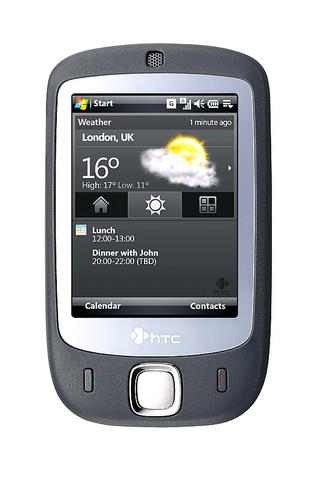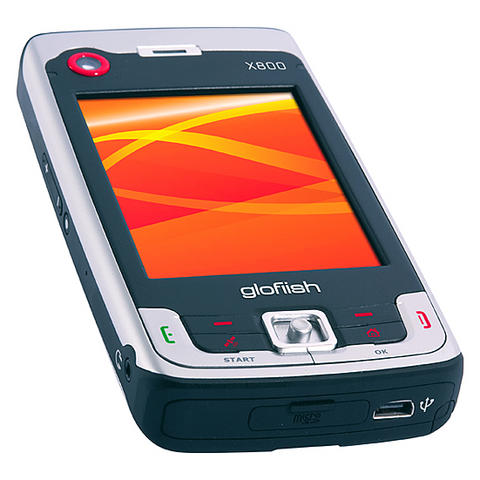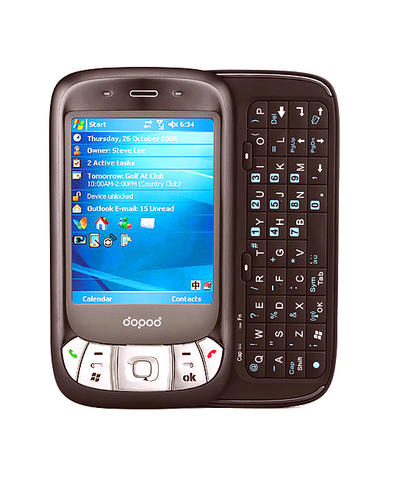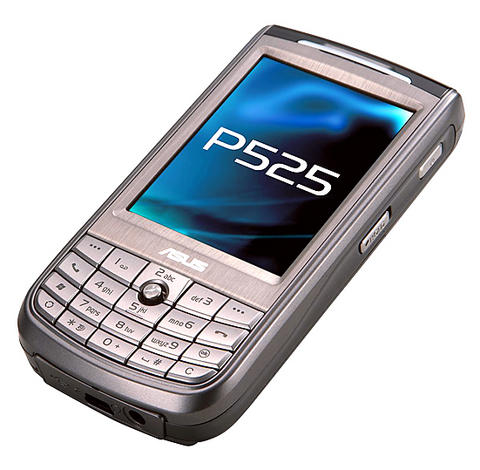After months of sweaty-palmed anticipation, the iPhone has finally landed. However, unless you live in the US and subscribe to AT&T you are sadly out of luck - you can't buy one. But are there any alternatives if you can't wait?
Taipei-based HTC believes there is. The organization, until recently branded Dopod in Taiwan's domestic market, is now rolling out globally under the corporation's original moniker, and the Touch is its first product. As such, a lot is riding on the cell phone's successful reception.
The spec sheet is comparable to the iPhone - a big touch screen, camera, mobile e-mail, and a keyboard that is notable only by its absence. It runs the very latest variant of Windows Mobile, so the guys at Microsoft will also be watching this product launch with particular interest.

It's difficult not to be impressed by the Touch's diminutive size, rounded form, rubbery paint and neat design details, such as the way the status LEDs are placed behind the speaker grille. Ignoring the cheap-looking chrome trim from around the camera, it's clear that this is the company's most concerted attempt yet to break out of the business device field - it is very good looking, and is already a hit with the girls in the office.
HTC's Industrial Designer, Francois Bellet-Odent, said the collection of rocks and pebbles scattered around his Taipei office were referenced when designing the phone's form. Considerable design and engineering effort was focused on removing the step between the case of the phone and the screen, which would ruin the otherwise very soft form - something that plagues most touch screen devices.
The big news, however, is the update to the user interface, dubbed TouchFlo. The first element is a remodeled home screen that is a replacement for the regular Windows display. It's a big improvement, and presents the user with large, nicely drawn buttons for composing new messages, checking the weather or checking for missed calls - and it even tells the time. Apple's influence is plain to see, but it is no less attractive for that.

The second is the TouchCube UI, which forms the basis of HTC's advertising effort. Essentially, it's a flashy program launcher that allows the user to access the most important applications using one hand alone. It's activated by swiping your thumb or finger up the screen, and then you spin the "cube" sideways to see one of three views - your most important contacts, media and photos, and applications.
More astute readers will be wondering why the cube only has three sides, and unfortunately this is not the product's only slipup. The touch screen is not very responsive and requires a surprising degree of pressure to encourage it to work properly, and if the screen is anything close to being free of grease the user's finger stutters across. None too smooth.
When it works, flipping between the three panels is quite fun, right up until the point when you need to do anything useful like write an SMS, when you are ejected, naked and shivering, back into the world of Windows Mobile. There is then no choice but to slide out the stylus and begin poking away at the on-screen keyboard, squinting at the tiny characters. The Internet experience is even worse: pages load in entirely unexpected ways, and scrolling side-to-side trying to read an article quickly becomes frustrating.

Despite its flaws the Touch still impresses. If you are a committed Windows Mobile user looking for something more pocket-sized, unimpressed by the LG Prada phone's cynical branding, or cannot bear to wait until Apple's baby reaches these shores, this may be the phone for you. But an iPhone it is not.
NT$15,900; Stores nationwide; Available now
Taiwan's other contenders:

PHOTO: COURTESY OF ASUS
Glofiish X800
Cell phones are packing more and more equipment into ever-smaller packages. The Glofiish X800 is a case in point, and loads GPS (unlike the iPhone) and WiFi into its flashy looking exterior. The name is strange, but the design and engineering seem solid - it won the Best of Computex award this year.
NT$27,000; Available fall 2007
Asus P525
The Asus P525 employs a combination of a standard keypad with a touch screen, and looks rather similar to the Sony Ericsson P990i. It is aimed at the serious business user, and as a result looks pretty dull and grey. If you are going to have a keyboard at the base of the screen, you may as well have a bigger one, in the style of a Treo or Blackberry.
NT$16,900; PDA King; Available now
Dopod C800
Many people remain unconvinced that a touch screen for keyboard-intensive tasks, such as sending e-mail on the move, will work well. HTC have a number of models that slide open to reveal a generously big thumb keyboard but that are still small enough to slide into the pocket. The Dopod line is likely to get sidelined as the company shifts its focus to the Touch, so good deals may be available for this already established product in the future.
NT$19,999; Sogi.com; Available now
-- Jonathan Biddle is head of industrial design at DEM Inc, Taipei

Cheng Ching-hsiang (鄭青祥) turned a small triangle of concrete jammed between two old shops into a cool little bar called 9dimension. In front of the shop, a steampunk-like structure was welded by himself to serve as a booth where he prepares cocktails. “Yancheng used to be just old people,” he says, “but now young people are coming and creating the New Yancheng.” Around the corner, Yu Hsiu-jao (饒毓琇), opened Tiny Cafe. True to its name, it is the size of a cupboard and serves cold-brewed coffee. “Small shops are so special and have personality,” she says, “people come to Yancheng to find such treasures.” She

Late last month Philippines Foreign Affairs Secretary Theresa Lazaro told the Philippine Senate that the nation has sufficient funds to evacuate the nearly 170,000 Filipino residents in Taiwan, 84 percent of whom are migrant workers, in the event of war. Agencies have been exploring evacuation scenarios since early this year, she said. She also observed that since the Philippines has only limited ships, the government is consulting security agencies for alternatives. Filipinos are a distant third in overall migrant worker population. Indonesia has over 248,000 workers, followed by roughly 240,000 Vietnamese. It should be noted that there are another 170,000

In July of 1995, a group of local DJs began posting an event flyer around Taipei. It was cheaply photocopied and nearly all in English, with a hand-drawn map on the back and, on the front, a big red hand print alongside one prominent line of text, “Finally… THE PARTY.” The map led to a remote floodplain in Taipei County (now New Taipei City) just across the Tamsui River from Taipei. The organizers got permission from no one. They just drove up in a blue Taiwanese pickup truck, set up a generator, two speakers, two turntables and a mixer. They

Hannah Liao (廖宸萱) recalls the harassment she experienced on dating apps, an experience that left her frightened and disgusted. “I’ve tried some voice-based dating apps,” the 30-year-old says. “Right away, some guys would say things like, ‘Wanna talk dirty?’ or ‘Wanna suck my d**k?’” she says. Liao’s story is not unique. Ministry of Health and Welfare statistics show a more than 50 percent rise in sexual assault cases related to online encounters over the past five years. In 2023 alone, women comprised 7,698 of the 9,413 reported victims. Faced with a dating landscape that can feel more predatory than promising, many in